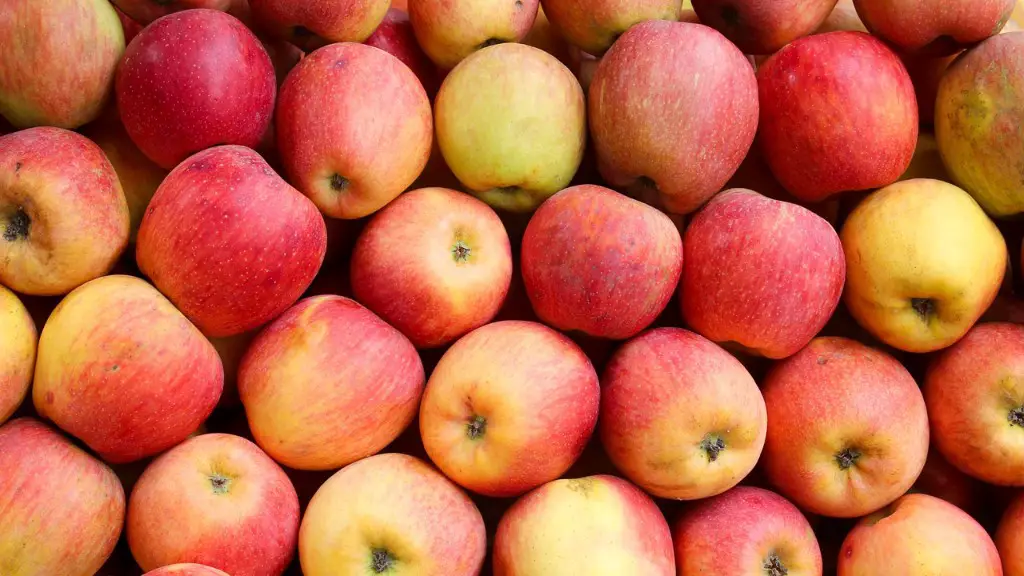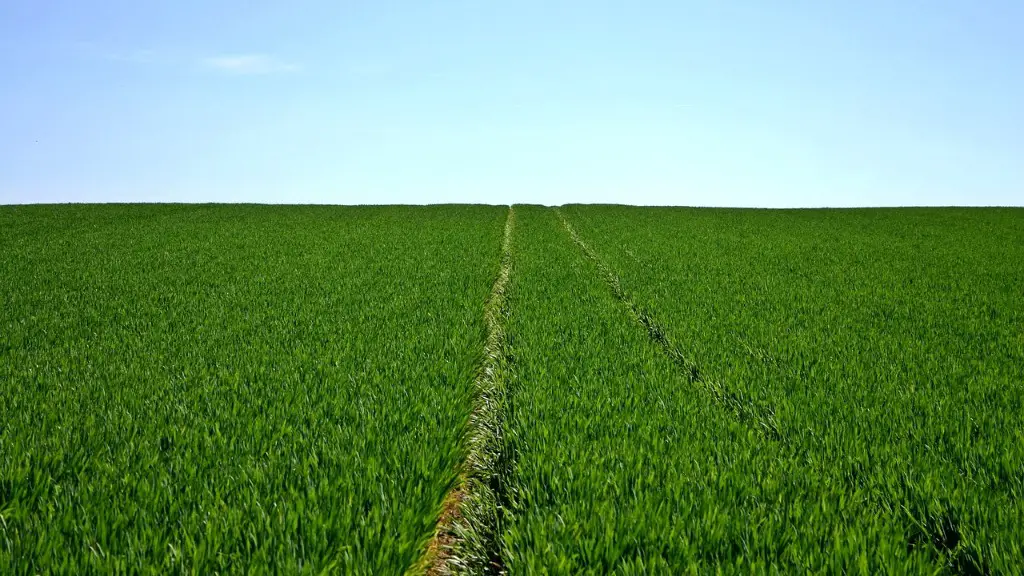Agriculture is the backbone of the Nigerian economy and contributes significantly to its GDP. 70% of the Nigerian population is employed in the agricultural sector and it is the main source of income for many households. The sector provides raw materials for industries, food for consumption and export, and employment for millions of Nigerians.
There is no doubt that agriculture contributes to the Nigerian economy. Agriculture is the main source of livelihood for about 70% of the population and provides employment for about 60% of the labor force. Agriculture accounts for about 21% of Nigeria’s Gross Domestic Product (GDP) and is a major foreign exchange earner. The sector is also a major source of raw materials for the agro-based industries
How does agriculture impact economic growth in Nigeria?
Agriculture is a vital sector of the Nigerian economy, accounting for 40% of the country’s Gross Domestic Product (GDP) and employing around 70% of the workforce. Agriculture is also the dominant economic activity in rural areas, where approximately 50% of the population resides. The sector plays a crucial role in poverty reduction and food security, and is therefore a key priority for the Nigerian government.
In 2021, agriculture contributed around 2336 percent to Nigeria’s GDP, 3141 percent came from industry, and 4379 percent from the services sector. This means that agriculture is still a very important part of Nigeria’s economy, but it is not as important as it once was. The services sector is now the most important part of the economy, and this is where most Nigerians now work.
How is agriculture beneficial to Nigeria
Agriculture is an important sector of Nigeria’s economy and it contributes to the Gross Domestic Product (GDP). Agriculture is a major source of foreign exchange for the country. Between January and March 2021, agriculture contributed to 2235 percent of the total Gross Domestic Product.
The figure in 2021 for annual contribution was higher than the 040% recorded in Q3 2021. The annual contribution stood at 047% in 2021. This is a positive sign for the future of the company.
What are three contributions of agriculture to the economy of Nigeria?
Agriculture is a vital sector of the Nigerian economy and is a major source of employment, food provision, and foreign exchange. The sector contributes significantly to the country’s gross domestic product (GDP) and is a key driver of economic growth. Agriculture is also a major source of livelihood for the majority of the population, particularly in rural areas. The sector provides an important safety net for the poor and vulnerable, and plays a critical role in poverty reduction.
However, with the discovery of oil and the resulting increase in government revenue, agriculture was no longer the priority it once was. The government began to invest more in the oil industry, and agriculture was largely neglected. As a result, Nigeria’s agricultural production declined and the country became increasingly dependent on imported food.
In recent years, there has been a renewed focus on agriculture in Nigeria. The government has been investing more in the sector and working to improve agricultural productivity. This is important not only for food security, but also for the country’s economy as a whole. Agriculture still has the potential to be a major earner of foreign exchange and to create jobs for the millions of Nigerians who are unemployed.
What is Nigeria’s economy most dependent on?
Nigeria is one of the largest economies in Africa. Since the late 1960s, it has been based primarily on the petroleum industry. A series of world oil price increases from 1973 produced rapid economic growth in transportation, construction, manufacturing, and government services. However, this growth was not accompanied by commensurate development in other sectors of the economy, and the country remained largely dependent on oil revenue.
The situation in Nigeria is dire. Many people have given up looking for jobs, after years of fruitless efforts. The number of Nigerians living in poverty rose by 35 million in 2022. The country’s inflation rate increased to 21% in 2022, compared with an average of 106% for emerging and developing economies and 88% for the world. Things are not looking good for Nigeria.
What is the largest economy in Nigeria
Dangote Cement is the largest company in Nigeria with a market capitalization of 11677 trillion dollars. It is the only company in the country to be included in the Forbes Global 2000 list in 2022. The company’s economic performance in 2021 was very strong, with a revenue of 862 billion dollars and a net income of 48 billion dollars. The company’s share price has increased by more than 50% in the last 12 months, and it is currently one of the most valuable companies in Africa.
Micro Small and Medium Enterprises (MSMEs) are often the backbone of many economies, and Nigeria is no exception.
UNIDO has said that MSMEs account for 96 per cent of all business activities in Nigeria, which is an impressive statistic.
MSMEs play a vital role in creating jobs and driving economic growth, and so it is crucial that they are supported and encouraged to thrive.
The Nigerian government has been working on a number of initiatives to help MSMEs, and it is hoped that these will make a positive difference.
Is agriculture big in Nigeria?
Agriculture plays a vital role in the Nigerian economy and is currently responsible for over 30% of employment opportunities. The country has a total agricultural land area of 708 million hectares with crop production being the largest subsector. Nigeria is the world’s largest producer of cassava and yam. The sector offers vast potential for growth and development and presents a great opportunity for investors.
Nigeria’s agricultural sector is facing a number of challenges that could impact production in the coming years. Insecurity is a major concern, as clashes between farmers and herders have become increasingly common. Climate change is also a significant threat, as drought and flooding have become more frequent. Obtaining financing for agricultural projects has become more difficult, as banks are reluctant to lend to the sector. Additionally, the quality of research and development in the sector is poor, as funding is limited.
Which country has highest GDP in agriculture
As of 2019, the United States had the highest agriculture GDP in the world at $174.2 billion. China was in second place at $991 billion, followed by India ($47.5 billion), Brazil ($39.1 billion), and Russia ($37.6 billion).
Nigeria’s non-oil sector is vital to the country’s economy, accounting for a significant portion of the GDP. However, the oil sector dominates export earnings, making it essential for the country to grow its non-oil revenue. By diversifying its economy, Nigeria can reduce its reliance on oil and become more resilient to global economic fluctuations.
What are the 5 major sources of revenue for the government in Nigeria?
The 5 major sources of revenue for the Government are Goods and Services Tax (GST), Income tax, corporation tax, non-tax revenues, union excise duties.
1. Goods and Services Tax (GST): GST is a tax levied on the supply of goods and services. It is a destination-based tax, meaning that the tax is levied on the consumption of goods and services within the country.
2. Income tax: Income tax is a tax levied on an individual’s or a corporation’s income.
3. Corporation tax: Corporation tax is a tax levied on the profits made by a corporation.
4. Non-tax revenues: Non-tax revenues are revenues generated from sources other than taxes. They include fees, charges, and fines.
5. Union excise duties: Union excise duties are taxes levied on certain goods and services by the central government.
There are a number of development challenges facing Nigeria including the lack of job opportunities, high poverty levels, regional inequality, and social and political unrest. Inflation has also been a major problem in recent years, pushing an additional 8 million Nigerians into poverty. The government needs to take action to address these issues and improve the lives of its citizens.
Conclusion
Agriculture is a vital sector of the Nigerian economy and makes up a large portion of the country’s GDP. The sector employs a significant portion of the workforce and contributes to the country’s export earnings. Agricultural products make up a large portion of Nigeria’s exports, and the sector is an important source of foreign exchange.
The answer is yes. Agriculture is a vital sector of Nigeria’s economy and accounted for about 32.6% of the country’s GDP in 2016. The sector employs about 60% of the country’s labor force and is a major source of export earnings. Agriculture also provides raw materials for Nigeria’s manufacturing industries. In conclusion, agriculture is a major contributor to Nigeria’s economy and its importance cannot be overstated.





